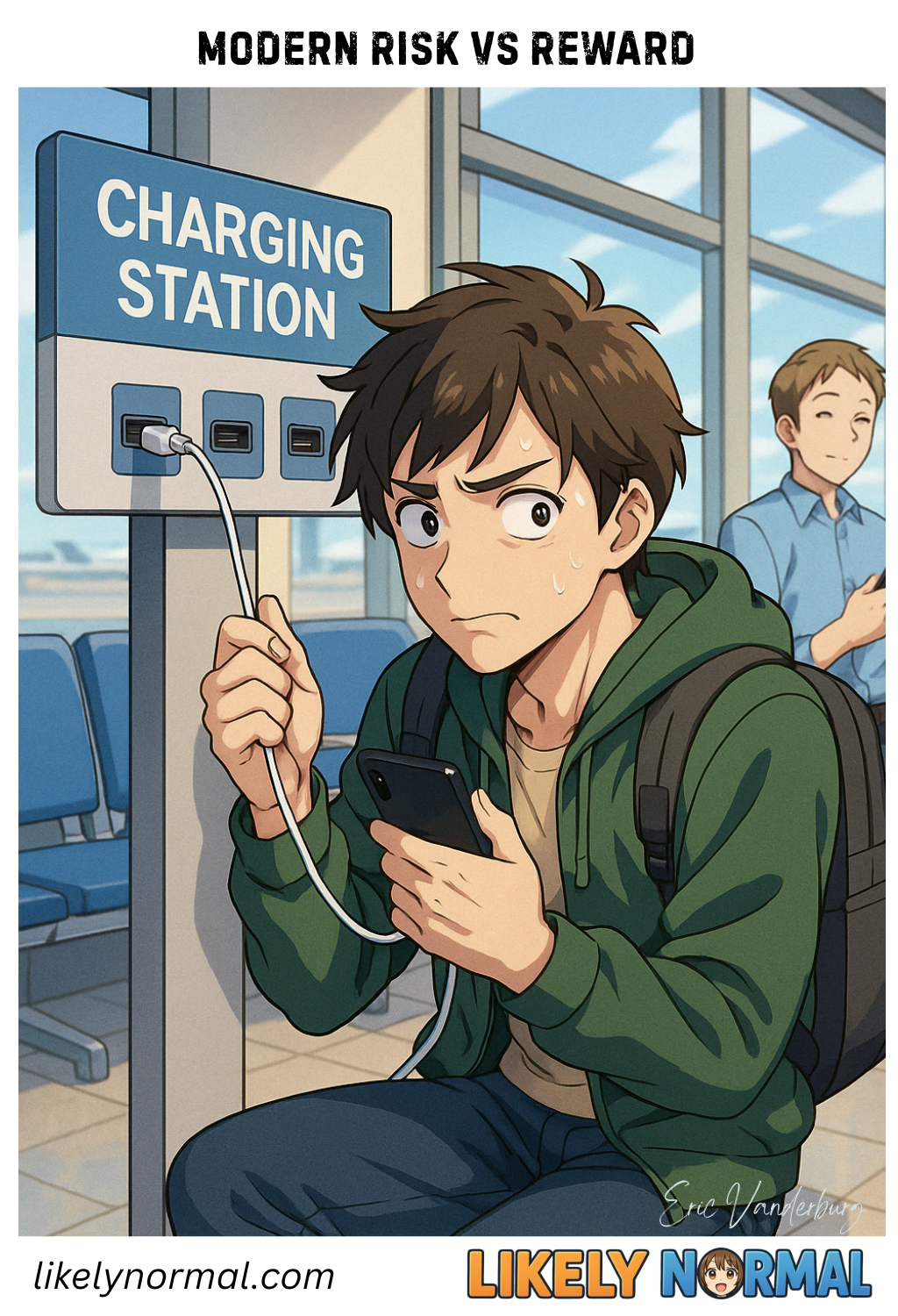Digital Trust
Remember when plugging your phone into a public charger was as carefree as accepting a stick of gum from a stranger? Those days are gone. Now, every USB port in the wild comes with an unspoken question: “Are you giving me power, or are you secretly downloading my entire life story?” Our hyper-connected world has turned us all into amateur cyber-ninjas, side-eyeing airport charging stations like they might be Trojan horses in disguise. That little jolt of electricity suddenly feels like a potential gateway for every hacker’s favorite party trick—”Let’s see how many contacts we can steal before their flight boards!”
It’s not paranoia if they’re really out to get you—and by “they,” we mean the legion of digital pickpockets who’ve turned innocent-looking charging kiosks into data slurpees. What was once a simple act of desperation (“2% battery, must plug in NOW”) now requires the risk assessment of a CIA operative. “Do I risk a dead phone, or do I potentially donate my passwords to some sketchy server farm?” This is the modern dilemma: our crippling dependence on battery life versus the creeping suspicion that free power might be the internet’s version of a “free puppy.”
So here we are, living in an age where even electricity can’t be trusted, carrying around portable chargers like digital pacifiers, because sometimes, the safest plug is the one you brought yourself. The irony? We’ll still roll the dice at the airport when our battery hits 1%, because nothing makes a person throw caution to the wind like the threat of missing their “last chance to connect to Wi-Fi” notification.

Discussion ¬